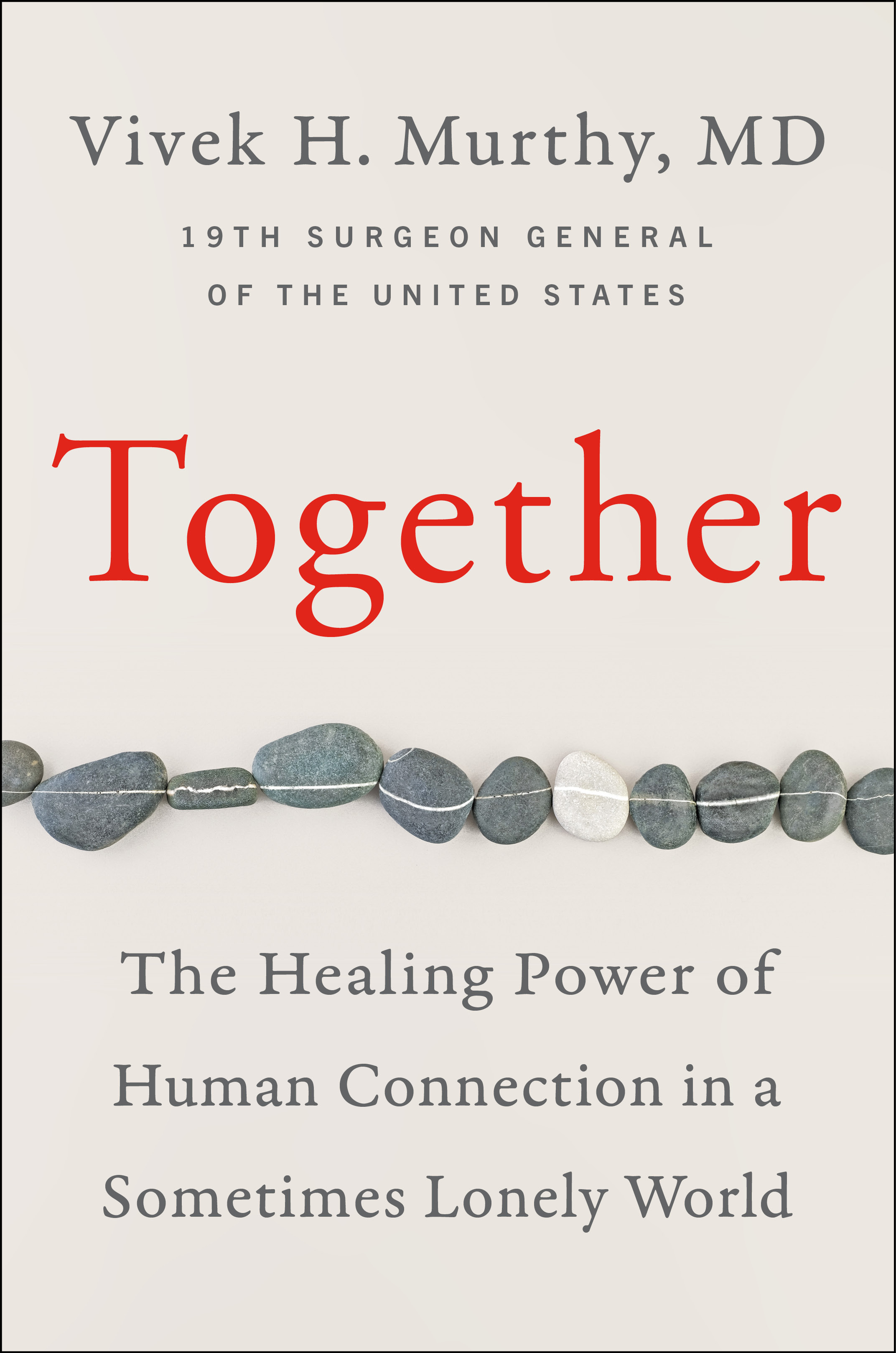One of our most important sources of connection is the workplace. Given that most of us today spend more of our waking hours on the job than at home, and many of us interact more with our colleagues than with our non-work friends, we need meaningful connections at work to sustain us. But often these friendships require an encouraging nudge.
While I was at the surgeon general’s office, our staff grew so quickly and was so busy dealing with pressing public health issues that many of our team members didn’t have a chance to get to know one another. The team included a decorated Army nurse; a woman who had spent years providing dental care to incarcerated individuals; an accomplished pianist and preacher; an Olympic-level runner; and several team members who had struggled with addiction in their families. People generally got along well, but we didn’t fully recognize one another’s rich life experiences. So to bring us closer, we developed “Inside Scoop,” a practice at our all-hands meetings designed to strengthen connection.
At each weekly staff meeting, one team member was asked to share something about themselves through pictures for five minutes. Presenting was an opportunity to share more of our lives, and listening was an opportunity to recognize our colleagues in the way they wished to be seen.
I remember one Inside Scoop from a team member who had proudly served in the U.S. Marine Corps. I expected him to talk about his experiences in the military. Instead, he spoke about the complex relationship he’d had with his father and how he could see his father’s spirit living on in the musical talent of his own children. He described his mother as his hero and shared how remembering her in the face of a challenge would transform his doubts into strength. As he spoke, his eyes glistened.
I felt a deep connection to him in that moment. I was inspired by his honesty and felt compelled to reflect on my own relationships. These few moments of honest sharing helped to solidify a bond between us.
Inside Scoop quickly became the team’s favorite time of the week. Everyone felt more valued after seeing their colleagues’ genuine reactions to their stories. Team members who had traditionally been quiet during discussions began speaking up. They appeared less stressed at work. And most of them told me how much more connected they felt to their colleagues and to the mission they served.
In many companies, however, individualism dominates despite the fact that most work enterprise requires collective effort. The gig economy has doubled down on that individualistic thrust, as a growing number of people work alone as ride-share drivers, freelance consultants, and on-demand assistants. Meanwhile, the growing trend toward automation further threatens to undermine the human relationships that make work socially as well as economically rewarding. All of this is contributing to workplace alienation and loneliness.
Gallup’s 2017 “State of the American Workplace” report revealed that just four in 10 U.S. employees strongly agree that their supervisor or someone at work seems to care about them as a person. That may be, in part, because many workplace cultures often overtly or implicitly discourage friendship, especially across hierarchical lines. So do certain professions. One survey of 1,624 full-time employees, published in 2018, found that the loneliest by far were those with degrees in law and medicine.
Apart from the emotional toll this takes on individuals, it’s also bad for business, as Dr. Sigal Barsade, a professor of organizational behavior at the Wharton School of the University of Pennsylvania, found with her 2018 study of loneliness in the workplace. Her data showed that lonelier employees feel less committed to their employers and also to their coworkers. In moments of stress or conflict, lonely employees are more likely to decide that certain relationships are not worth the effort. This attitude then fans out to ever-widening circles of potential connections within the organization. When social ties begin to fray among colleagues, distrust infects communication and collaboration. Entire teams and even departments can suffer.
Gallup’s report found that having positive personal relationships was among the most important factors in employee engagement, alongside personal development opportunities and a sense of purpose. Gallup further found that when workers are respected and relationship is valued by the culture, friendships can generate innovative discussions that benefit the team and organization, as well as individuals. In other words, the social health of workers is closely intertwined with the overall health of the workplace.
Still, resistance to the idea of friendship at work is stubborn. When Gallup created a survey asking if employees had “a best friend at work,” one Washington Post columnist puzzled, “What is this? High school?”
Gallup wasn’t asking about close friends, however. The question was meant to help respondents distinguish genuinely supportive and durable relationships from surface, weak, and negative interactions. It was the general quality of connection that mattered to the researchers, even in passing acquaintances.
Gallup found that when coworkers have a friend at work, they’re inspired to act on behalf of their company in ways that employees without connected relationships are not. These actions extend to the sharing of useful information, voicing constructive opinions, and giving feedback without feeling threatened. But the more important effects benefit workers themselves. Having a friend at work makes us feel safer, more resilient and calmer when disagreements arise and more likely to support one another emotionally and physically. Gallup found that when two-thirds of a team strongly agreed that they had a best friend at work, they averaged 20 percent fewer accidents than teams in which only one-third of the members had a best friend. When asked why, the workers said simply that they look out for their friends. Because they care and are paying more attention, friends will remind one another to wear their hard hat. They’ll announce hazards and pitch in to stop injuries in the making.
Gallup found that having friends at work is particularly important to women. Friendships enhance their enjoyment of work and their performance and make them less likely to quit or search for other employment. Having friends at work led to women feeling less stressed and more connected to and trusting of coworkers. Researchers call this the power of “relational energy.”
“Relational energy” refers to the emotional energy generated (or depleted) in every social interaction. According to Dr. Wayne Baker, faculty director of the University of Michigan’s Center for Positive Organizations, relational energy often sparks a chain of reactions. The first reaction is emotional, when we feel good making a strong positive connection with another person. The second is cognitive, clarifying our thoughts and improving our memory and cognitive performance. In short, connection often makes us feel better emotionally, which fires up our engagement with the tasks in front of us. And when we’re energized and engaged at work, it leads to the third reaction—productivity.

Follow us here and subscribe here for all the latest news on how you can keep Thriving.
Stay up to date or catch-up on all our podcasts with Arianna Huffington here.


